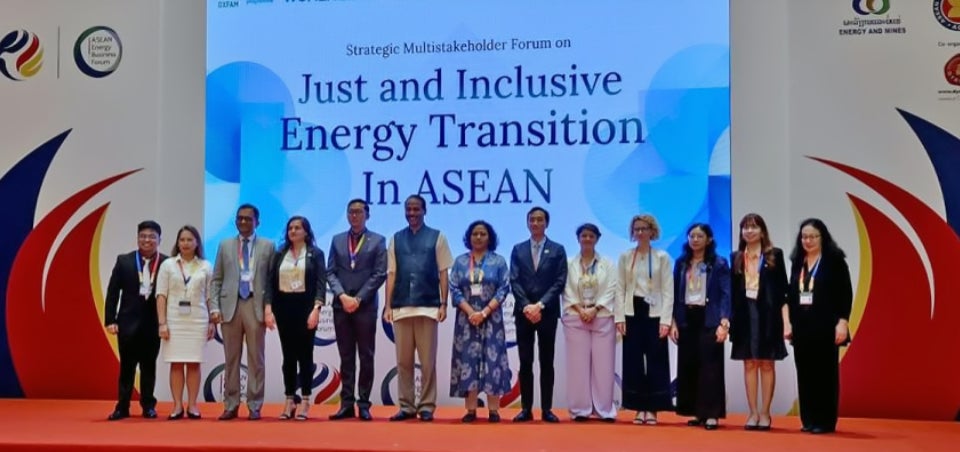Equitable and inclusive energy transitions on the agenda at the ASEAN Energy Business Forum
Date:
Originally published on the Partnerships for Infrastructure's website, 26 September 2024

Southeast Asia’s energy industry is at a crucial phase in its transition process. Eight out of ten ASEAN Member States have set targets for sustainable and renewable infrastructure that will transform the way energy is generated and stored across the region, boosting resilience, minimising emissions, and supporting climate goals. However, concrete action plans to ensure the targets are met in an equitable and inclusive way are still needed.
The Paris Agreement and United Nations Sustainable Development Goals outline equity and inclusion as key pillars of the energy transition. Women, children, people with disabilities, and other typically marginalised groups face the greatest risk of negative impacts from large-scale infrastructural projects and transitions to alternative energy sources. ASEAN Member States are committed to prioritising an informed and tailored approach to community engagement and accountability, policy development, financing, and workforce initiatives to ensure energy transitions do not risk increasing inequality.
But this is not something that governments can do in isolation. Business, as major innovators, economic drivers and employers, are key to the planning and integration of equity and inclusion in this transition. Getting everyone around the table to share challenges and opportunities and ensure expertise from all stakeholders is readily available is critical to moving the agenda forward.
In collaboration with the ASEAN Center for Energy (ACE), Oxfam, and United Nations Environment Programme (UNEP), Partnerships for Infrastructure (P4I) is co-hosting a half-day side event focused on accelerating these outcomes in the energy transitions, drawing upon diverse experts from the region to highlight key initiatives and progress in youth and community-led initiatives, inclusive climate finance, resilience, and more.
This event marks the first time the ASEAN Energy Business Forum (AEBF), the flagship annual international conference and exhibition that promotes the development of the ASEAN energy sector, has put just and inclusive energy transitions on the agenda - but it’s not the first time it has been an important topic for many ASEAN Member States. Experts from different Member States will contribute to the session, highlighting their experiences, priorities, and key lessons from their work in equitable and inclusive energy transitions. The session will focus on skill-building, workforce equity, policies, financing, and community engagement in the transition to clean energy in Southeast Asia.
Leaders and delegates from around the region, including policymakers, private sector leaders, researchers, and other stakeholders will attend the annual AEBF alongside the ASEAN Ministers of Energy Meeting (AMEM) in Vientiane, Lao PDR from 25 - 27 September 2024.
As Southeast Asia advances its journey toward a sustainable energy future, it is imperative that we embed equity and inclusion into every stage of the transition. The ASEAN Energy Business Forum’s focus on just and inclusive energy transitions marks a critical step in bringing this vision to life. By collaborating across governments, private sectors, and communities, we can create energy systems that are not only cleaner and more resilient but also equitable and inclusive. The shared insights and actions emerging from this event will help shape a future where the benefits of the energy transition are accessible to all, leaving no one behind. Together, we can power a more inclusive and sustainable Southeast Asia.
This initiative is supported by UNEP through the EmPower: Women for Resilient Societies Programme, jointly implemented with UN Women with support from the Governments of Germany, New Zealand, Sweden and Switzerland.